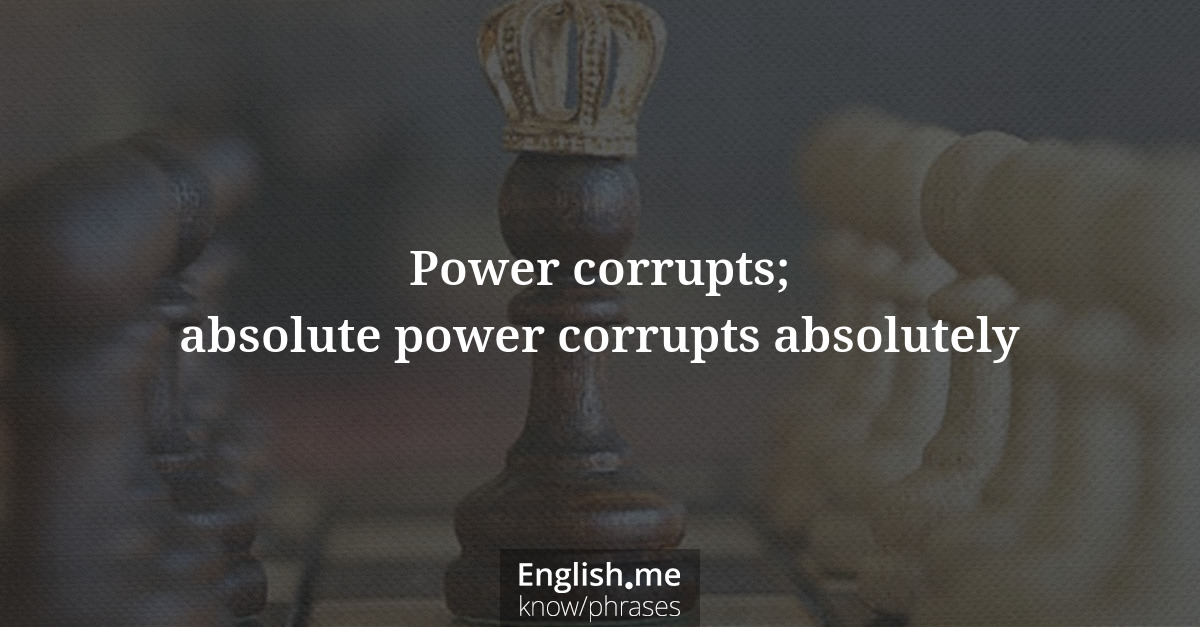Explaining "Power corrupts; absolute power corrupts absolutely"
Reviewed and edited by  Lloyd Cooper 15/11/2024, 04:33
Lloyd Cooper 15/11/2024, 04:33
English.me team member
 What does it mean?
What does it mean?

The phrase means that when a person gains power, they are likely to become corrupt or make unethical decisions. The more power they have, the more likely they are to be corrupted or act without moral restraint.
 Tone
Tone
Cautionary Origin
Origin
The phrase is often attributed to Lord Acton, a British historian, who wrote in a letter to Bishop Mandell Creighton in 1887, "Power tends to corrupt, and absolute power corrupts absolutely. Great men are almost always bad men."
 Examples of usage
Examples of usage
- The dictator's reign exemplified the adage that absolute power corrupts absolutely.
- When the CEO assumed unchecked control over the company, it became evident that power corrupts; absolute power corrupts absolutely.
- The novel explores the theme that power corrupts; absolute power corrupts absolutely as the protagonist gains influence and begins to abuse it.

 English
English español
español française
française italiano
italiano deutsche
deutsche 日本語
日本語 polski
polski česky
česky svenska
svenska Türkçe
Türkçe Nederlands
Nederlands